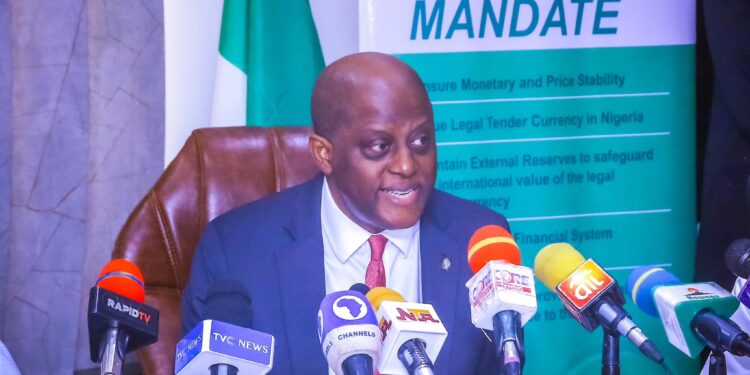
The Governor of the Central Bank of Nigeria (CBN), Yemi Cardoso, has cautioned that persistent inflation could necessitate ongoing monetary tightening measures and potentially hinder the nation’s economic growth.
This assertion was made in the foreword of the inaugural edition of the CBN’s Macroeconomic Outlook for Nigeria, recently published by the apex bank
Cardoso indicated that if inflation continues to rise, the CBN may continue its hawkish monetary policy stance, characterized by higher interest rates. This outlook follows the recent release of the CPI report by the National Bureau of Statistics, which showed a rise in inflation rates for June and a month-on-month increase for the first time since February 2024.
Highlighting several risks to Nigeria’s economic prospects, Cardoso pointed to security challenges, supply-side shocks, and global economic fragmentation as factors that could exacerbate inflationary pressures. These challenges, coupled with longstanding structural imbalances, might require sustained monetary tightening measures, potentially limiting the country’s growth potential.
Despite these risks, Cardoso acknowledged Nigeria’s overall economic resilience, citing expected growth, moderated inflation expectations, and improved exchange rate stability. He projected economic growth to increase from 2.74% in 2023 to 3.38% in 2024, driven by enhancements in domestic crude oil production and refining capacity, alongside anticipated increases in crude oil prices.
While inflation is anticipated to moderate to 21.40%, within a range of 19.84% to 25.35%, down from 28.92% in December 2023, Cardoso emphasized the need for continued tight liquidity conditions and a stringent monetary policy stance to anchor inflation expectations effectively.
Looking ahead, Cardoso underscored the importance of intensifying monetary tightening measures, sustaining reforms in the foreign exchange market, and addressing security challenges affecting food production and oil installations. He called for enhanced coordination among government policy organs to harmonize policies and ensure cohesive socio-economic measures, aiming to bolster domestic prosperity and economic governance under a unified vision.
In conclusion, Cardoso clarified that the CBN’s Macroeconomic Outlook aims to evaluate recent economic developments and forecast short-term economic prospects for Nigeria, aiming to provide comprehensive insights into critical sectors and policy perspectives that influence economic outcomes.